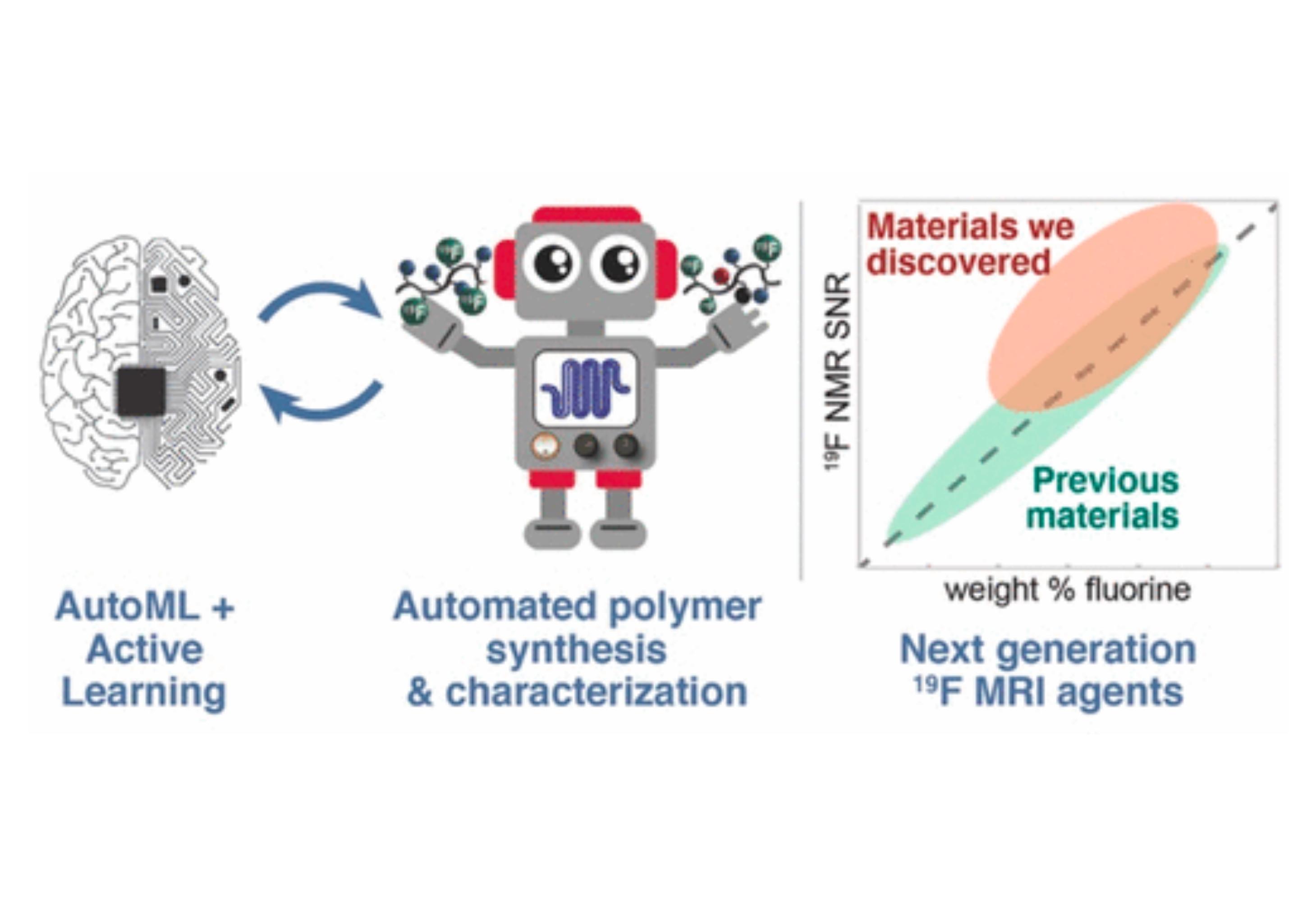Machine-Learning-Guided Discovery of 19F MRI Agents Enabled by Automated Copolymer Synthesis
Abstract
Modern polymer science suffers from the curse of multidimensionality. The large chemical space imposed by including combinations of monomers into a statistical copolymer overwhelms polymer synthesis and characterization technology and limits the ability to systematically study structure–property relationships. To tackle this challenge in the context of 19F magnetic resonance imaging (MRI) agents, we pursued a computer-guided materials discovery approach that combines synergistic innovations in automated flow synthesis and machine learning (ML) method development. A software-controlled, continuous polymer synthesis platform was developed to enable iterative experimental–computational cycles that resulted in the synthesis of 397 unique copolymer compositions within a six-variable compositional space. The nonintuitive design criteria identified by ML, which were accomplished by exploring <0.9% of the overall compositional space, lead to the identification of >10 copolymer compositions that outperformed state-of-the-art materials.
Citation
Machine-Learning-Guided Discovery of 19F MRI Agents Enabled by Automated Copolymer Synthesis
Marcus Reis, Filipp Gusev, Nicholas G. Taylor, Sang Hun Chung, Matthew D. Verber, Yueh Z. Lee, Olexandr Isayev, and Frank A. Leibfarth
Journal of the American Chemical Society 2021 143 (42), 17677-17689
DOI: 10.1021/jacs.1c08181


